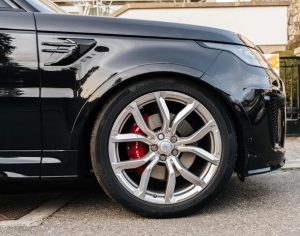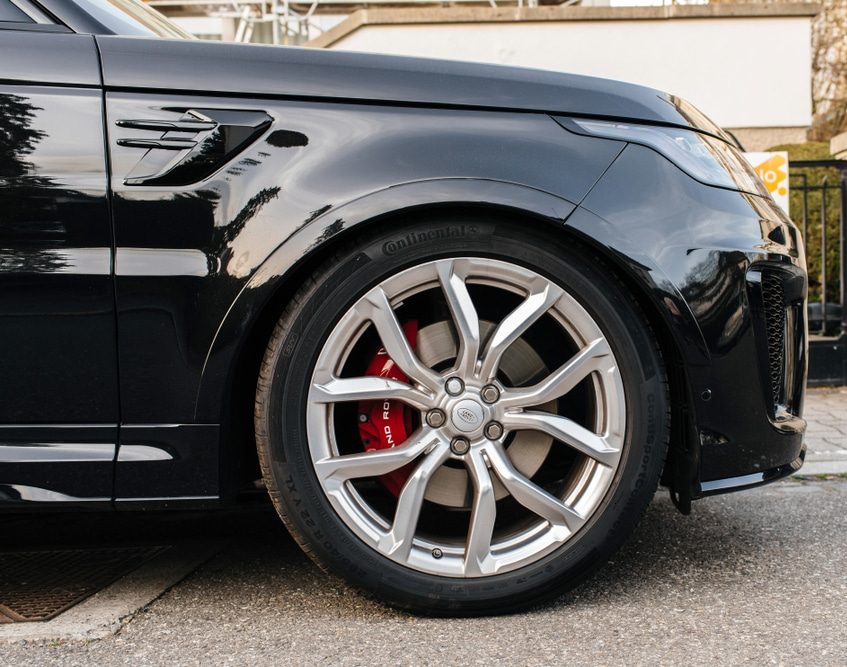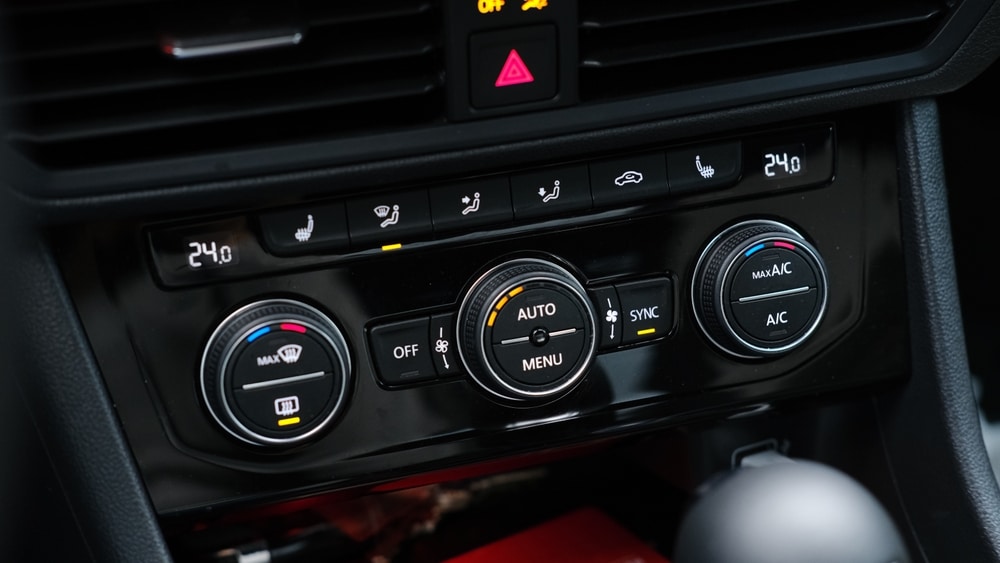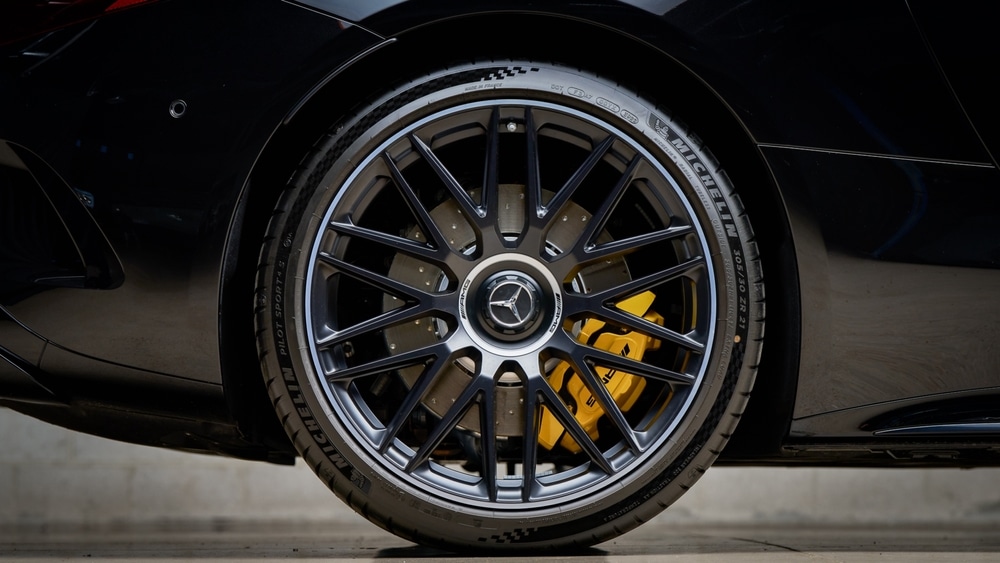Brakes are one of the most essential safety features on any vehicle, including the Land Rover. However, faulty brakes can not only compromise the performance of your vehicle but also put your life and the lives of others on the road at risk.
In this blog, we will delve into the dangers of malfunctioning brakes on a Land Rover, the causes of brake failure, and the steps you can take to extend the life of your brakes and keep yourself and your passengers safe.
From regular inspections and maintenance to identifying warning signs and taking action, we will cover it all. So, whether you’re a Land Rover owner or just someone who wants to learn more about vehicle safety, read on for valuable information on one of the most critical components of your car.

The Importance of Good Brakes
The consequences of faulty brakes on a Land Rover or any vehicle can be serious and potentially life-threatening. If your brakes are not working properly, your vehicle may not be able to stop effectively, which increases the risk of a collision or accident. If the brake system fails while your Land Rover is in motion, you may lose control of the vehicle, putting yourself and others on the road at risk of injury.
At Shires Garage, we understand the importance of brake safety and prioritise it in all of our work. We are keenly aware that brake issues are a major contributor to road traffic accidents in the UK, accounting for nearly 25% of all incidents. That’s why we pay close attention to your Land Rover’s braking performance to ensure your safety on the road.
Before we explore ways to keep your brakes in top condition and extend their lifespan, it’s important to understand how the braking system on a Land Rover functions.
How the braking system works on your Land Rover
The braking system of a modern Land Rover typically utilises a combination of hydraulic and electronic systems to slow and stop the vehicle.
Components of the brake system include the brake pedal, master cylinder, callipers, and pads or shoes.
When the driver presses the brake pedal, it activates the piston in the master cylinder, which then sends brake fluid through the lines to the callipers. The callipers contain pistons that press against the pads or shoes, which in turn press against the discs or drums to slow or stop the vehicle.
Some Land Rover models also feature advanced systems such as Anti-lock Braking System (ABS) to prevent wheel locking during braking, Electronic Brakeforce Distribution (EBD) which adjusts the brake force based on the vehicle’s load distribution, and Electronic Stability Control (ESC) which uses sensors to detect and correct any skidding or loss of control.
Maintaining your Land Rover’s brakes
Maintaining a Land Rover’s braking system, which comprises a combination of hydraulic, electrical and mechanical components, is vital to ensure its proper functioning. Regular check-ups and maintenance are necessary to prevent problems and keep the brakes in good working condition.
At Shires Garage, some of the most common parts we see that may need attention include:
- Brake pads or shoes: These are the friction material that presses against the discs or drums to slow or stop the vehicle. Over time, they can wear down and need to be replaced.
- discs or drums: These are the metal discs or drums that the brake pads or shoes press against to slow or stop the vehicle. They can become worn or damaged and may need to be resurfaced or replaced.
- Brake callipers: These are the components that hold the brake pads or shoes in place and press them against the discs or drums. They can become seized or leak brake fluid, which can cause the brake pedal to feel soft or the brakes to not work properly.
- Brake lines and hoses: These are the parts that carry brake fluid from the master cylinder to the callipers. They can become corroded or damaged, which can cause leaks or a loss of brake pressure.
- Brake fluid: Over time, brake fluid can absorb moisture, which can lower its boiling point and reduce its effectiveness. It should be checked and replaced according to the manufacturer’s recommendations.
- ABS module and sensors: ABS system uses sensors to detect when a wheel is about to lock up during braking and reduce brake pressure to that wheel. These sensors can fail and the module can malfunction, requiring replacement.
Regular maintenance and inspections of the brake system, including the brake pads, discs or drums, callipers, brake lines and hoses, brake fluid and ABS system can help prevent problems and ensure that the brakes are working properly.
Brake Health: Things to look out for
There are several indicators that may signal a problem with your Land Rover’s brakes. Some of the most common signs to look out for include:
- Squeaking, grinding, or growling noises while braking: This can indicate worn brake pads or shoes that need replacement.
- A soft or spongy brake pedal: This can indicate air in the brake lines or low brake fluid levels.
- Pulling to one side while braking: This may indicate that the brake callipers on one side of the vehicle are not functioning properly or the brake pads or shoes are worn unevenly.
- Warning lights on the dashboard: Some Land Rover models have warning lights that will turn on if there is a problem with the brake system, such as low brake fluid or a malfunctioning ABS system.
- Vibration or pulsation while braking: This can indicate warped or damaged discs or drums that may need resurfacing or replacement.
- Leaking brake fluid: This can indicate a problem with the brake lines or hoses and can result in a loss of brake pressure.
It’s important to pay attention to any unusual noises or changes in the way the vehicle feels while driving, and to have the brake system inspected by a professional mechanic if you suspect any problems. Regular maintenance and inspections can help prevent problems and ensure that the brakes are working properly.
How to extend the life of your Land Rover brakes
Prolonging the life of your Land Rover’s brakes can save you from costly repairs and replacements. Here are some top tips for extending the lifespan of your brakes:
- Regular maintenance: Regular brake inspections and maintenance, such as replacing worn brake pads or shoes and resurfacing or replacing worn discs or drums can prevent problems and extend the life of the brakes.
- Responsible driving: Avoid heavy braking, high speeds, and sudden stops, as this can reduce wear on the brakes and extend their life.
- Avoid overloading: Carrying heavy loads or towing trailers increases the wear and tear on the brakes, so avoid overloading your vehicle.
- Avoid high temperatures: Prolonged use of the brakes in high temperatures, such as in heavy traffic or on long downhill grades can cause brake fade and reduce the effectiveness of the brakes.
- Check brake fluid: Check the brake fluid level and condition, and replace it as needed. Moisture in the brake fluid can reduce its boiling point, which can cause the brakes to fade or fail.
- Check brake system and brake pads: Check the brake system for any leaks, and the brake pads for wear. Replace any worn or damaged parts as needed.
By following these tips, you can help extend the life of the brakes on your Land Rover, and ensure that they are always in good working condition.
When it comes to maintaining and repairing the brakes on your Land Rover, it’s important to choose an independent specialist garage like Shires Garage. Here’s why:
- Expertise: Our technicians at Shires Garage are experts in Land Rover brakes and have the knowledge and experience to properly diagnose and repair any issues with your vehicle’s braking system.
- Cost-effective: We offer more cost-effective repairs and maintenance services than dealerships.
- Personalised service: We understand the importance of your Land Rover to you, we provide personalised service and ensure that your vehicle is in good hands.
- Prioritise safety: Safety is always our top priority at Shires Garage, and we understand that properly functioning brakes are essential for the safety of yourself and your passengers, as well as other drivers on the road.
- Quality parts: We only use genuine or high-quality equivalent parts that are designed to meet or exceed the manufacturer’s specifications, which can help to extend the life of your brakes and improve their performance.
By choosing Shires Garage, you can be confident that your Land Rover’s brakes will be properly maintained and repaired, ensuring your safety and prolonging the life of your vehicle. Contact us today to schedule an appointment.



